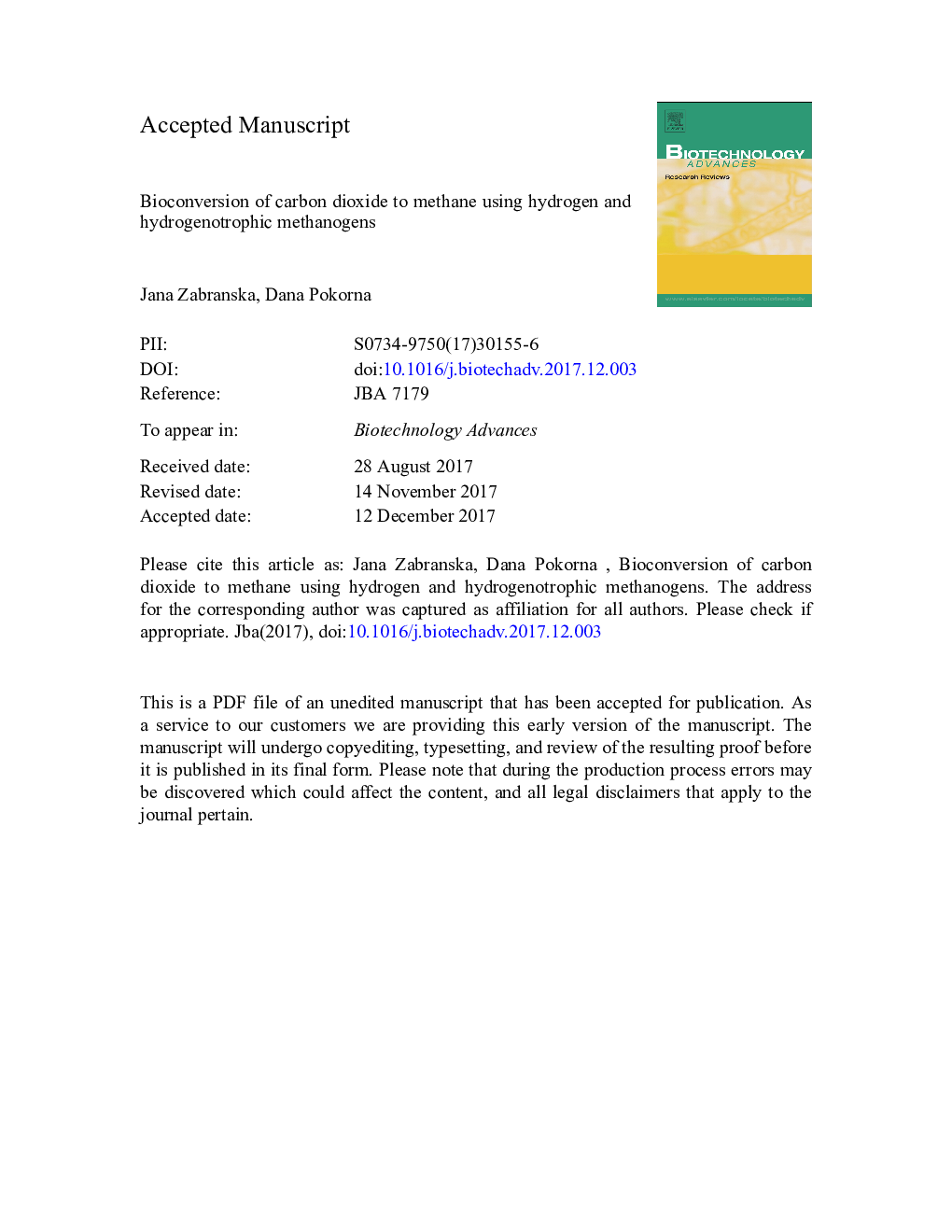| Article ID | Journal | Published Year | Pages | File Type |
|---|---|---|---|---|
| 6486638 | Biotechnology Advances | 2018 | 34 Pages |
Abstract
Biogas produced from organic wastes contains energetically usable methane and unavoidable amount of carbon dioxide. The exploitation of whole biogas energy is locally limited and utilization of the natural gas transport system requires CO2 removal or its conversion to methane. The biological conversion of CO2 and hydrogen to methane is well known reaction without the demand of high pressure and temperature and is carried out by hydrogenotrophic methanogens. Reducing equivalents to the biotransformation of carbon dioxide from biogas or other resources to biomethane can be supplied by external hydrogen. Discontinuous electricity production from wind and solar energy combined with fluctuating utilization cause serious storage problems that can be solved by power-to-gas strategy representing the production of storable hydrogen via the electrolysis of water. The possibility of subsequent repowering of the energy of hydrogen to the easily utilizable and transportable form is a biological conversion with CO2 to biomethane. Biomethanization of CO2 can take place directly in anaerobic digesters fed with organic substrates or in separate bioreactors. The major bottleneck in the process is gas-liquid mass transfer of H2 and the method of the effective input of hydrogen into the system. There are many studies with different bioreactors arrangements and a way of enrichment of hydrogenotrophic methanogens, but the system still has to be optimized for a higher efficiency. The aim of the paper is to gather and critically assess the state of a research and experience from laboratory, pilot and operational applications of carbon dioxide bioconversion and highlight further perspective fields of research.
Related Topics
Physical Sciences and Engineering
Chemical Engineering
Bioengineering
Authors
Jana Zabranska, Dana Pokorna,
